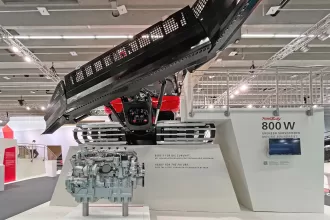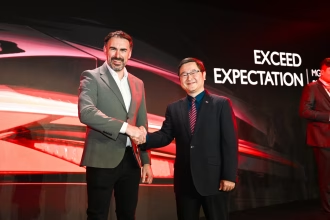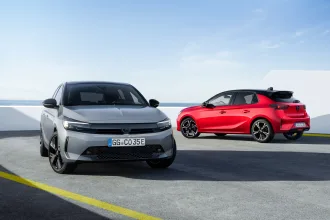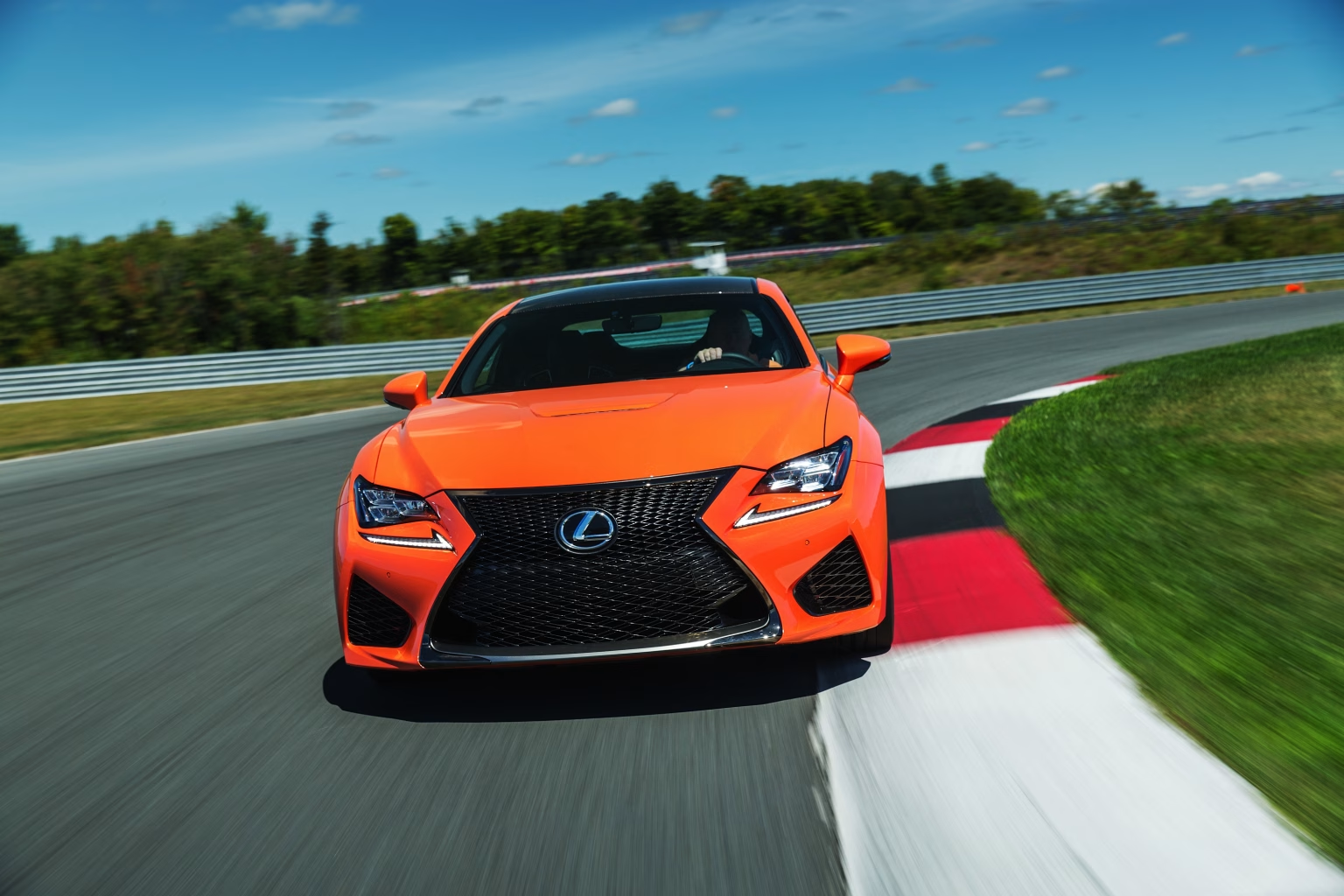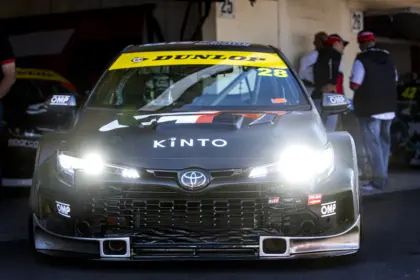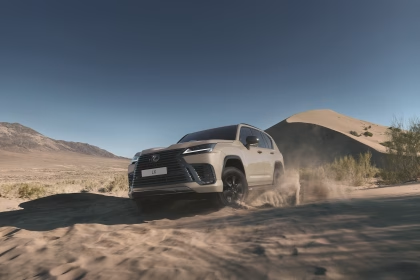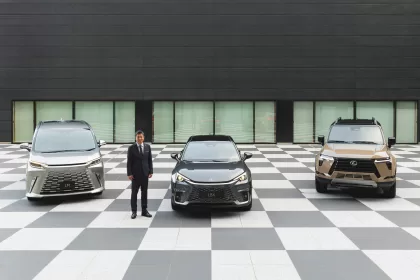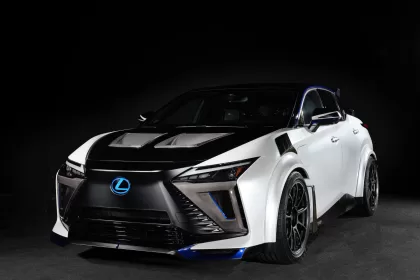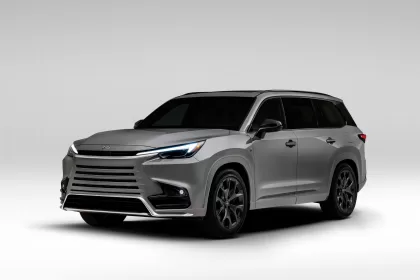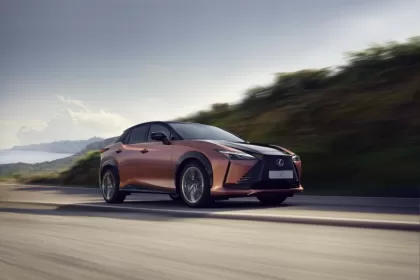Thirty-five years ago, Lexus set out to disrupt the automotive status quo with the promise of creating the world’s most refined luxury car, together with an unrivalled customer experience that would redefine luxury ownership.
Today, Lexus sets the standard on multiple fronts including award-winning vehicle quality, exquisite craftsmanship, an extensive luxury line-up that meets the diverse needs of customers and a range of pioneering low and zero CO2 tailpipe emission powertrains.
The desire to create an elevated ownership experience was declared in the Lexus Covenant, which stated “Lexus will treat each customer as we would a guest in our home.” This meant anticipating their needs in advance with thoughtful consideration – such as courtesy vehicle pick-up for servicing, complimentary service loan cars and the like – a precursor to what would become Lexus Encore in Australia.
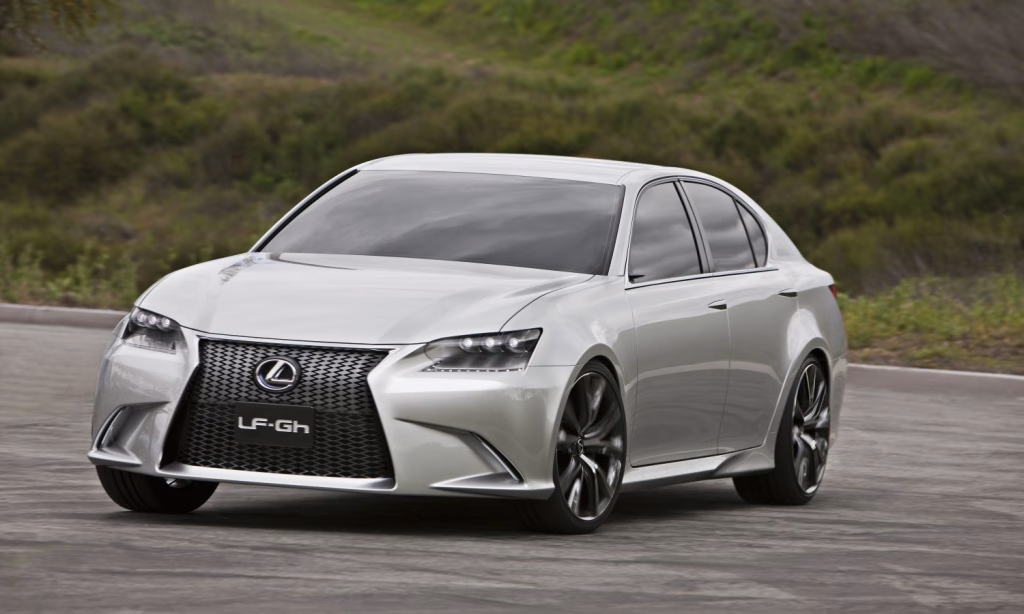
The Lexus future will be all-electric, expressed through the LF-ZC concept* – Lexus Future Zero emission Catalyst. Its bold lines, low body and dynamic proportions explores the striking design freedoms offered with next-generation battery electric vehicle (BEV) architecture.
While future Lexus vehicles inspired by the LF-ZC will drive in silent luxury to redefine refinement, their emotive designs will roar and stir the soul.
Circle F and Flagship 1
The desire to disrupt the automotive industry began in 1983 when then Toyota Motor Corporation President Eiji Toyoda commissioned Circle F: a project to build “a car that is better than the best in the world.”
It was a proclamation for the pursuit of a new excellence. It would summons the collective effort of 60 designers, 1400 engineers and 2300 technicians. Some 450 test vehicles and 973 prototypes of the 4.0-litre quad-cam V8 engine were pushed beyond the limit over no less than 4.4 million kilometres of testing to create the first Lexus.
For Flagship 1, and all Lexus projects to follow, the ‘Yet Philosophy’ was implemented – a unique Lexus approach to help inspire imaginative solutions to complex problems, especially when forcing seemingly unrelated or juxtaposed concepts or ideas together. For F1, specifically, a car that is fast yet efficient, refined yet expressive, light yet strong, responsible yet exhilarating, and elegant yet functional.
In January 1989 Flagship 1 came to life when the LS 400 was shown to the world at the North American International Auto Show (NAIAS), and the Lexus brand was born. Today, Lexus is represented in more than 90 countries around the globe, winning over more than 10 million customers with a range of refined and stylish luxury sports cars, sedans and SUVs.
Throughout the decades, ‘disruption’ would become synonymous with ‘innovation.’ Lexus was the first luxury brand to take on the challenge of reducing CO2 tailpipe emissions across a range of vehicles through electrified powertrain technology. In 2006 it introduced the Lexus GS 450h – the world’s first hybrid luxury sedan – immediately following it up with the RX 400h, the world’s first luxury hybrid SUV. More than two million electrified Lexus vehicles have been delivered worldwide.
Lexus the disruptor, has achieved a great deal of success in 35 years and plans to continue to reshape personal luxury in the years ahead.
35 years of milestones:
1989
The Lexus legend begins with the LS 400 launching in North America. The ES 250 luxury executive sedan follows later in the year.
1990
Lexus arrives in various countries along with the LS 400, with a good sales uptake from customers across the globe. Lexus Encore 1, a suite of exclusive privileges, is also introduced in various global markets.
The LS 400 is an immediate hit in the motoring media, winning the industry’s most coveted award: Wheels magazine Car of The Year in Australia. “It put the Germans on notice, and put Lexus on the map,” declared Wheels. Noted Wheels editors across multiple decades would later confer and declare the LS 400 as the ‘best’ Car of The Year in the period 1990 to 1999 in different countries.
1991
Lexus offers the SC 400 coupe to customers in the USA, an elegant and sporty two-door sports car sharing the same 4.0-litre V8 powertrain as the LS 400. The SC 300 with a sporty inline six-cylinder engine follows soon after.
1992
Lexus launches its second model with the ES 300.
Lexus updates the LS 400 with more than 50 enhancements, showing the brand’s dedication to making luxury personal with thoughtful additions expressed through the finest Takumi craftsmanship.
1993
The GS 300 luxury performance sedan is sold in selected markets, slotting in between the now well-established LS and ES.
1994
The completely revised second-generation LS 400 – the original already heralded for having the best of everything – is launched, with even more performance, equipment and refinement thought possible.
1995
Lexus breaks new territory showing the LX 450, moulded from the successful Toyota Land Cruiser. The LX 450 brings luxury to the rugged SUV segment, with unmatched comfort and on-road refinement not seen before on a vehicle of this size or type. It would be sold in the USA from the following year. It is the first of many luxury SUVs to adorn the Lexus badge.
1996
Lexus the innovator introduces Adaptive Variable Suspension (AVS)2 on the all-new ES 300 luxury executive sedan.
1997
The GS 300 is introduced to several markets in the form of the second-generation performance sedan. It produces a silky 168kW from its 3.0-litre inline six-cylinder engine featuring variable valve timing.
1998
Lexus is the first carmaker to design and build an SUV from the ground up as a luxury vehicle. The RX 300 combines the best features of a luxury sedan with the practicality of a crossover, adding sophistication to the pursuit of urban and mild off-road adventure.
It was therefore the new-generation LX 470 of 1998 which became the first luxury Lexus SUV sold in many markets.
1999
Lexus luxury now comes in playful compact form, the IS 200 sedan arriving on our shores with a 2.0-litre naturally aspirated inline six-cylinder engine and engaging rear-wheel drive dynamics.
2000
Lexus continues to redefine luxury with the completely redesigned, third-generation LS flagship – the LS 430. Nearly 300 patent applications are filed during its development. It exudes class-leading dynamics with re-engineered suspension, steering, brakes and larger, syrupy smooth 4.3-litre V8.
The second-generation SC 430 two-door evolves from 2+2 coupe to be both coupe and convertible thanks to its retracting metal roof. Open top, sun-filled motoring arrives at the push of a button in less than 25 seconds.
2001
The SC 430 makes its debut, gradually increasing the number of Lexus models globally. The SC would be a constant in the Lexus line-up for a decade. Remarkably, in a little over 10 years, fledgling Lexus establishes itself as the leading luxury brand in the USA when it tops the sales charts for the second year in a row.
2002
The Lexus GX 470, a seven-seat body-on-frame large SUV built in left-hand drive, joins the LX 470 in the USA. Together with the RX 300, Lexus now has a formidable three-pronged line-up in the world’s biggest SUV market.
2003
The hint of hybrid power emerges with the svelte Lexus LF-S concept – Lexus Future Sedan – at the Tokyo Motor Show. The proposed high-output hybrid V8 is the first clear intention by Lexus to explore CO2 reducing tailpipe-emission solutions through electrified powertrains.
RX finally joins the local line-up with the global second-generation RX 330. RX would become the essence of Lexus – to this day it was won over more owners than any other Lexus model.
2004
The RX 400h, the world’s first luxury hybrid SUV, is shown in prototype form at the NAIAS. Based on the RX 330, the RX 400h’s innovative powertrain technology harmoniously delivers both higher performance and lower fuel consumption – objectives once considered mutually exclusive.
2005
The revolutionary LF-A concept is the star of that year’s NAIAS, showing what a Lexus supercar could look like. The goal is to leverage F1 technology with more than 370kW from a naturally aspirated V10 engine of less than 5.0 litres displacement.
Vehicle Dynamics Integrated Management (VDIM)2 driver aid innovation debuts in Australia on the latest GS. VDIM integrates control of the ‘drive, turn and stop’ systems to enhance driving stability for safe and predictable vehicle response faithful to driver input – a precursor to the Lexus Driving Signature (LDS).
The IS 250 supersedes the IS 200 in several global markets as Lexus grows from strength to strength with its product offering and sales.
2006
The Lexus LF-S shakes off its concept car clothes in LS 600hL production form. With a combined 327kW from the intelligent 5.0-litre V8 engine and AWD electric motors, it remains to this day the most powerful Lexus hybrid vehicle offered. A pivotal moment for Lexus locally with the arrival of hybrid luxury vehicles in the GS 450h and RX 400h.
2007
Lexus chooses the letter ‘F’ to distinguish its track-honed performance cars – F for Fuji Speedway, where these cars are developed, the F badge itself a stylised design of the track’s challenging turn one.
The IS F sedan is the first Lexus to adorn the badge. Taking the inherent sporting qualities of a compact rear-drive sedan, F boosts adrenalin with a 5.0-litre V8 producing a mighty 311kW and 505Nm, along with sports suspension tuning, renowned BremboTM performance brakes3, sports exhaust and slick aerodynamic body enhancements.
The Lexus LS 460 luxury sedan is judged World Car of The Year by a global panel of the most respected international motoring journalists.
2008
A convertible version of the LF-A concept is revealed, imagining what a flagship V10 supercar could look like as a roadster.
2009
The global, third-generation RX is introduced, enhancing its reputation for all-purpose practicality with uncompromised comfort and luxury. The updated RX 450h hybrid now has a 220kW V6 hybrid powertrain to deliver even more performance while remaining frugal.
Lexus confirms production of the LFA supercar. The beating heart of the LFA is a 4.8-litre V10 co-developed by Yamaha, producing a pulverizing 412kW and 480Nm with an astounding 9,000rpm redline.
2010
The new CT 200h, the first compact Lexus hybrid luxury hatchback, is shown at the Geneva Motor Show, available exclusively with 1.8-litre hybrid powertrain and front-wheel drive. Lexus receives the exalted J.D. Power and Associates Customer Service Index (CSI) quality award, now for the 13th time, the most by any brand.
The adrenaline-inducing IS F makes it’s debut on local shores, introducing the F brand to South African customers. This also marks the year of the IS Convertible introduction locally, expanding Lexus’ product line into more expressive market segments.
2011
The Lexus spindle grille is shown at the NAIAS, framing the front of the LF-Gh concept car, itself a preview of the fourth-generation GS executive sedan. The signature spindle design is expressed with an expansive one-piece mesh grille framed by a chrome strip around the outer edge with a unique concave hexagonal shape.
The LFA’s phenomenal V10 engine is declared Engine of the Year by UK EVO, the ‘gospel’ of performance car magazines around the world. The CT 200h arrives in showrooms as the most affordable Lexus yet, with strong demand making it a popular alternative to entry-level German rivals.
2012
The LF-LC hybrid coupe stuns visitors at the NAIAS, its astonishing design previewing the glorious LC coupe with distinctive spindle grille. The LF-CC concept shown later at the Paris Motor Show heralds the rear-drive RC and RC F mid-size sports coupes, the latter becoming a classic and highly sought after to this day.
2013
The next-generation IS goes on sale, presenting a hybrid powertrain for the first time with a combined system output of 164kW and fuel consumption of just 4.9 litres/100km4, striking a superb balance between performance and fuel economy. The ES returns to showrooms after a seven-year hiatus, and for the first time with hybrid powertrain in the ES 300h.
2014
Enter the RC F coupe, the new Lexus performance car hero – not as exclusive as the LFA, but still supremely fast and capable. With a 5.0-litre V8 delivering 348kW of thrust, the RC F joins the exclusive ‘F’ club alongside the IS F and LFA.
The mid-size NX SUV makes its debut, yet another Lexus to offer a choice of powertrains including intelligent hybrid. The NX is a game-changer for Lexus, immediately becoming a popular Lexus in many markets around the world.
2015
The innovative Lexus LF-FC concept at the Tokyo Motor Shows demonstrates zero tailpipe emission possibilities with hydrogen fuel-cell electric (FCEV) technology. Proposed hand gesture-operated human-machine interface is nouveau.
Lexus pushes the boundaries of mobility with the ‘Hoverboard of the Future.’ A collaboration between Lexus designers and experts in superconductive technology, it uses permanent magnets and superconductors cooled by liquid nitrogen to generate magnetic levitation and frictionless movement.
Lexus achieves a Grand Slam in the JD Power awards with a fourth consecutive award for Vehicle Dependability Study (VDS).
2016
The LC 500 coupe makes its debut in production form four years after starring as a concept. Hailed by Lexus as its strongest design statement yet, innovation includes the world’s first 10-speed automatic transmission in a luxury vehicle. The LC 500h hybrid follows in Geneva two months later.
The one millionth Lexus hybrid is an NX 300h, delivered to a customer in Milan, Italy.
2017
From wheels to waves, Lexus innovation heads offshore with the Sport Yacht concept. The recreational vessel’s unique carbon-fibre reinforced plastic (CFRP) construction saves nearly 1,000kg compared to a similar yacht built with fibreglass reinforced plastic (FRP), bringing quantifiable improvements in fuel efficiency.
2018
Low- and zero-tailpipe emission powertrains to meet the diverse needs of Lexus customers everywhere is the pretext to the LF-1 Limitless Concept crossover shown at the NAIAS. The Lexus multi-pathway approach is exemplified through hybrid, plug-in hybrid, battery only, ICE and fuel-cell technology with this vehicle.
2019
The compact and versatile Lexus LF-30 Electrified Concept is unveiled at the Tokyo Motor Show, a forerunner to the first Lexus production BEV to come. The LF-30 Electrified features in-wheel electric motors and employs the Tazuna cockpit concept set to underpin the interior design of all future Lexus vehicles.
The UX range is introduced to several markets globally. The compact SUV breaks new ground with innovative use of interior space to maximise passenger comfort.
2020
Lexus celebrates 30 years.
2021
Lexus continues to make luxury personal and create an unrivalled ownership experience by expanding its Encore1 customer benefits program. Encore Platinum5 introduces additional benefits such as Lexus on Demand6, with the freedom to swap into another Lexus when travelling or on special occasions.
The launch of the UX 300e – the first Lexus BEV – coincides with Encore Platinum Electrified7.
Reflecting famed Japanese omotenashi of anticipating guests’ needs in advance, Electrified offers complimentary supply and installation of a standard home charger8 to every UX 300e customer, together with complimentary access to the Chargefox9 fast-charging network.
The 2,000,000th Lexus electrified vehicle is delivered globally, with Lexus claiming 19 million tons cumulative reduction in CO2 emissions since 2005. Lexus commits to more than 10 new electrified models by 2025.
2022
The flourish in electrification continues with the NX 450h+, the first Lexus plug-in hybrid (PHEV). The NX 450h+ offers the best of both worlds – zero tailpipe emissions for up to an 87km range10 and the back-up of an ICE when required. The all-new, fifth-generation RX makes its global debut, headlined by the RX 500h
F Sport Performance, the first turbocharged hybrid powertrain from Lexus, with its 273kW also making it the most powerful Lexus available across the entire Lexus line-up. Innovative DIRECT4 all-wheel drive builds upon the LDS.
Lexus continues to make luxury personal for local customers with the Lexus Connected smartphone app11 enabling remote functionality and customisation of many Lexus Connected Services12.
2023
The RZ 450e BEV is launched – the second BEV from Lexus but the first built on a dedicated electric car platform. Innovations include a one-touch dimmable panoramic roof and infrared radiant heating to warm the legs of front-seat occupants.
The LM luxury mover takes Lexus into new space. Speaking of which, the LM 500h Ultra Luxury offers its two rear cabin guests plush VIP comfort synonymous with first-class airline travel.
Two striking vehicle concepts – the LF-ZC and LF-ZL – appear at the Tokyo Mobility Show, showcasing the Lexus vision for future BEV mobility. Innovative technology includes next-generation AI to reimagine Lexus omotenashi for occupants in a digitally connected world.
UK automotive consumer magazine WhatCar? hands Lexus its industry-leading Reliability Award for the seventh consecutive year.
2024
The Lexus LBX bursts onto the scene, appealing to a younger and affluent inner-city set. The stylish urban SUV is now the most compact Lexus, distilling the style, refinement and craftsmanship typically the hallmark of larger Lexus vehicles. Innovation includes a Lexus-first three-cylinder super-frugal 1.5-litre hybrid powertrain. In anticipating the needs of a new customer segment, Lexus expands its usership solutions by offering a full-service lease.13
Following on from the introduction of LM and LBX, the latest generation GX luxury SUV opens the door to a third all-new segment for Lexus markets in less than 12 months – deep off-road. Built in RHD for the first time, the GX headline is the new Overtrail grade, taking customers further into serious adventure territory than any Lexus before. GX is set to launch in South Africa in quarter one of 2025 and will be available with seven-seats for families undertaking mostly urban adventures.


